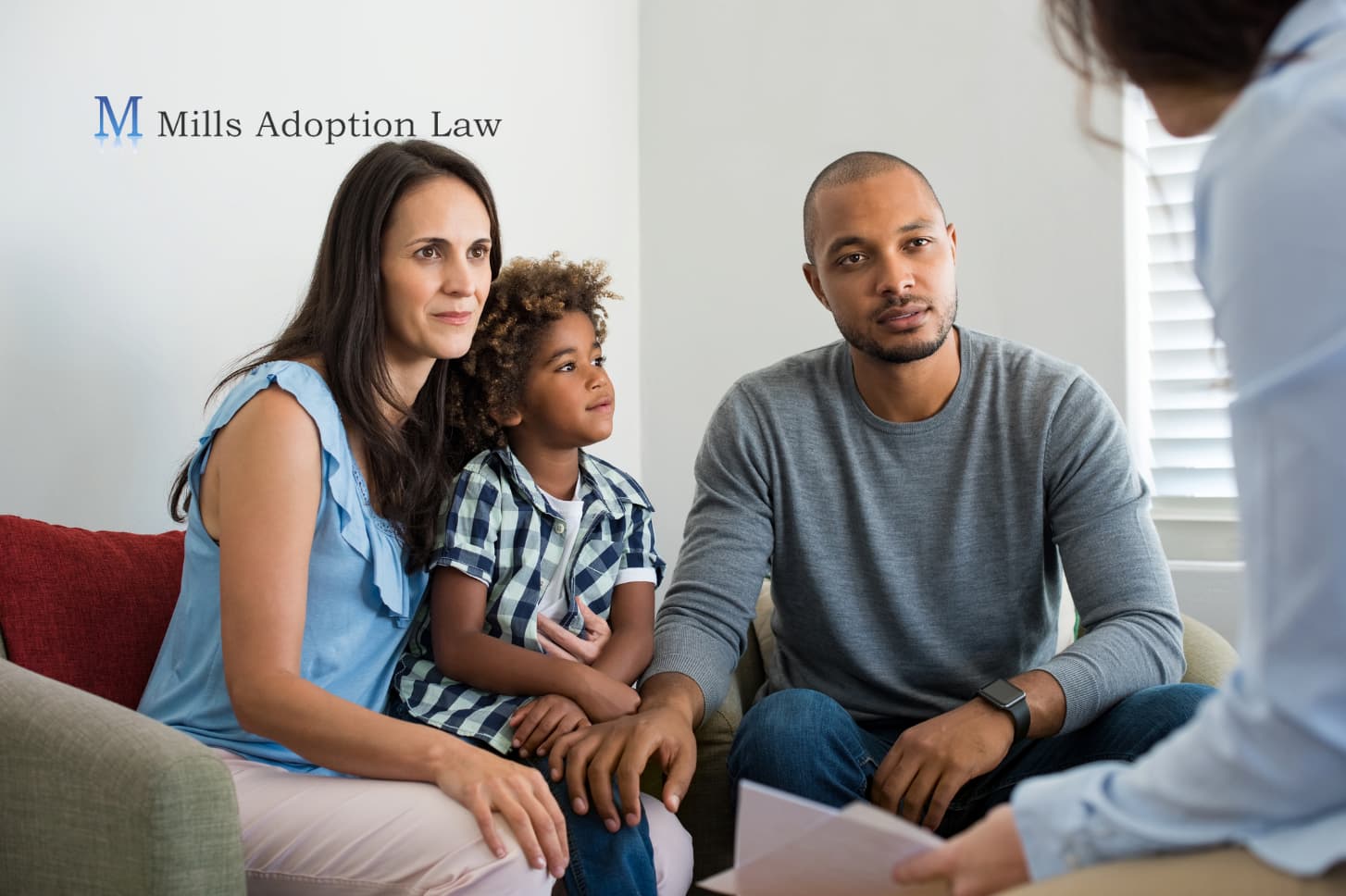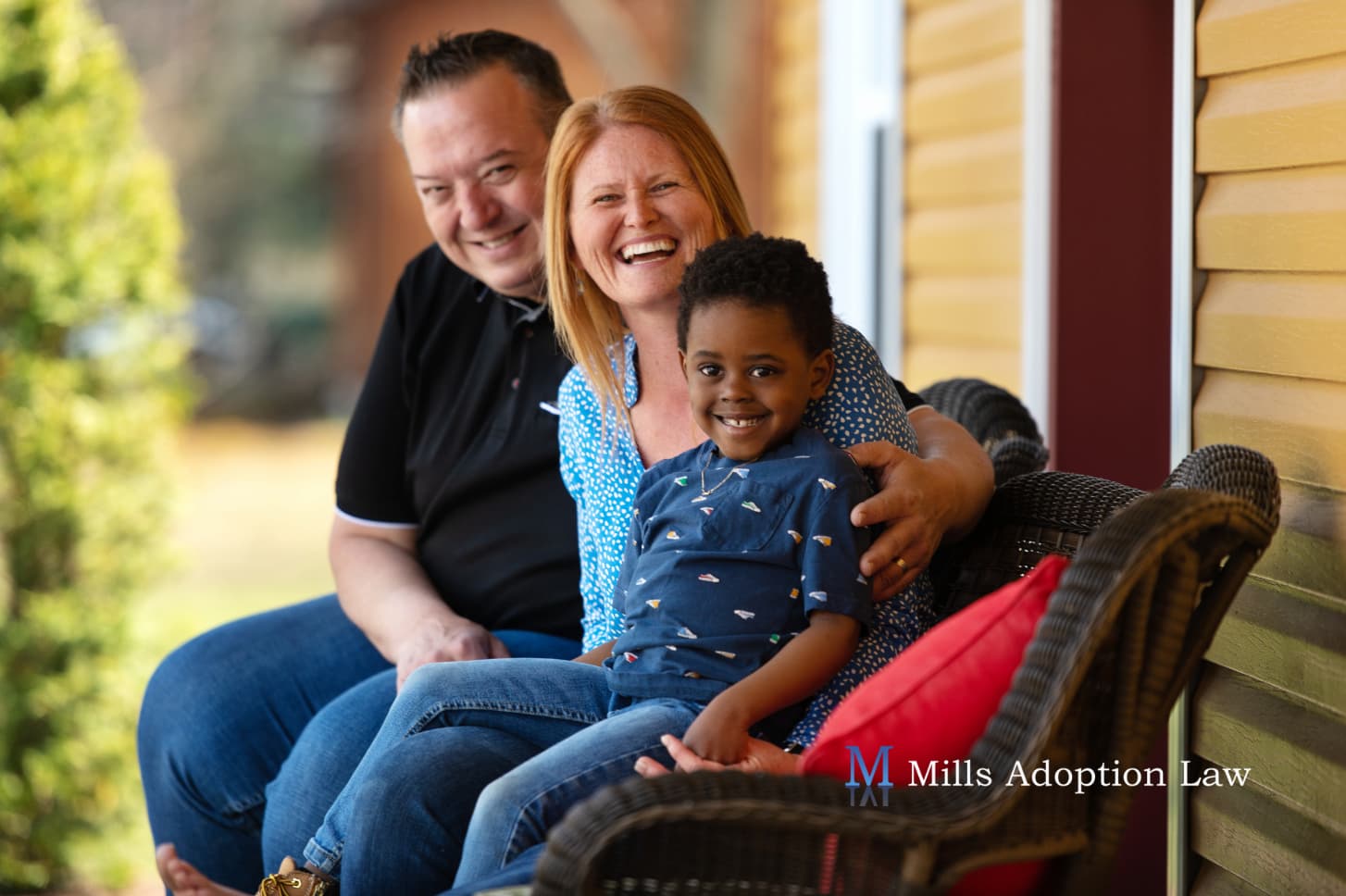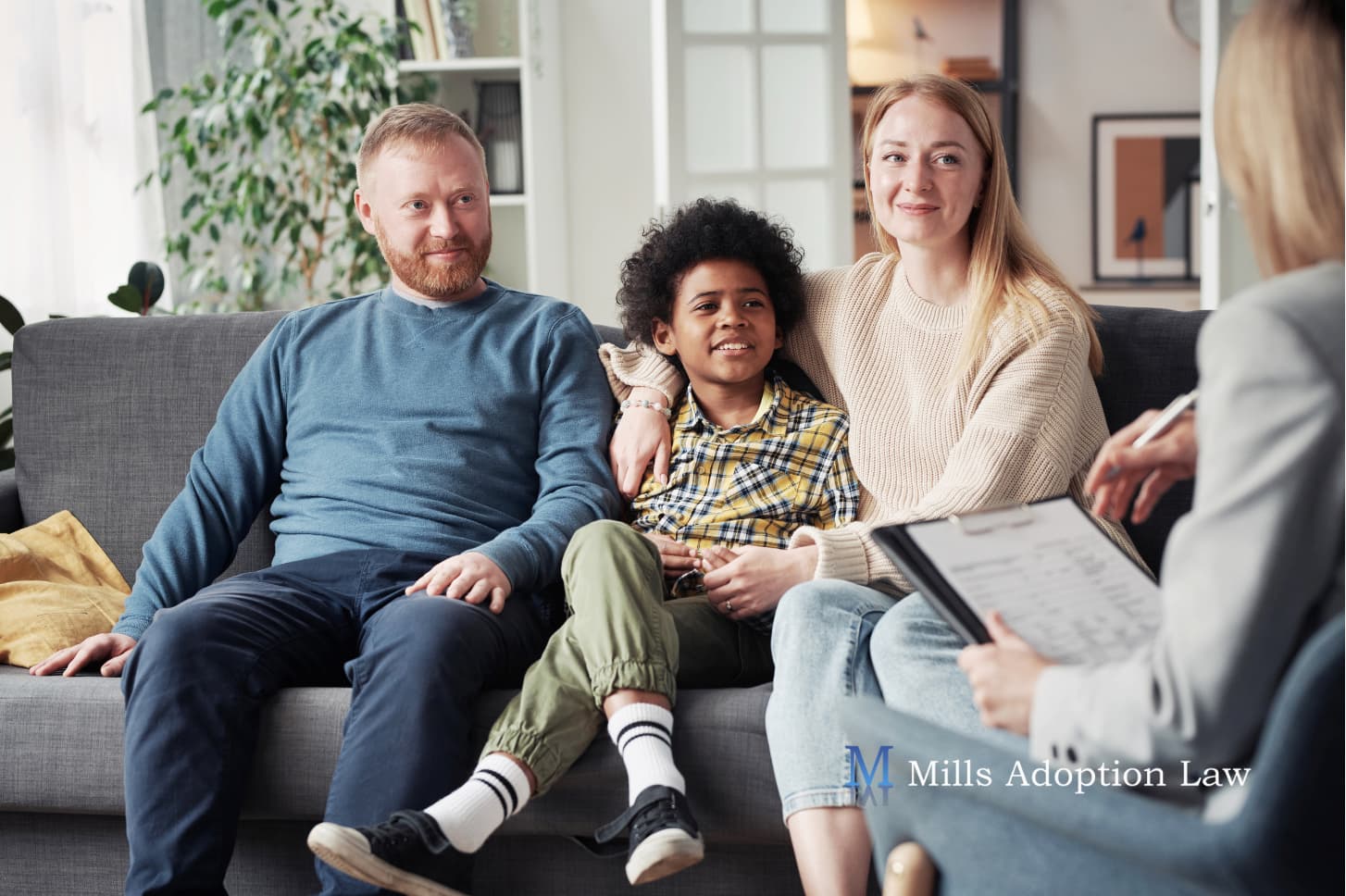Adopting A Child
Schedule a Consultation TodayHow To Adopt A Baby In North Carolina

If you are considering adopting a baby in North Carolina, you might be confused about how to get started. There is a process.
- Home Study.
- Locating Adoption Opportunities.
- The Matching Process.
- Placement.
- Finalization.
Here are the basics about how to adopt a baby in North Carolina from Bobby Mills:
1.Your Home Study (Preplacement Assessment)
In North Carolina, most adoptions require a home study, except for stepparents and placements between close relatives. A home study involves allowing a third party, usually a social worker from a private agency, to learn about your family.
The home study involves multiple visits to your home. The social worker gathers information about your family history, your health history and the current makeup of your family. The social worker talks to each family member about their feelings surrounding the adoption. The agency conducts criminal record checks and collects references.
The social worker writes a report. After the home study is complete, the agency makes a recommendation about whether the individual or family is suitable as an adoptive resource.
2.Adoption Opportunities.
Once you have an approved home study, you can begin looking for a placement opportunity. The objective is to be found by a birth parent who is considering placing a child for adoption. There are several ways that prospective adoptive parents can identify themselves as being available to adopt a child.
- Direct outreach
- Advertising
- Facilitators
- Adoption agencies
a. Direct outreach – Adoptive parents should always utilize their own social network of friends, family, and acquaintances. Many prospective adoptive parents also post their profiles on social media platforms.
b. Advertising – There are also media entities that specialize in placing advertising for prospective birth parents. Some place advertisements or host the prospective adoptive parents’ profiles. These entities may, or may not, be involved in making a match between birth parents and adoptive parents.
c. Facilitators – Facilitators advertise and act as intermediaries to make the match between birth parents and adoptive parents.
d. Adoption agencies – Agencies provide a full range of services – preparing the home study, advertising, acting as an intermediary to make the match between birth parents and adoptive parents, accepting legal custody of the child, making the placement, and providing postplacement services.
3.The Matching Process.
Once you have identified an adoption opportunity, then the next step is to determine whether the opportunity is the right one for your family.
In a direct or independent placement, it is the responsibility of the prospective adoptive parent to determine whether an opportunity is the right one for them. Advertisers and facilitators will present opportunities and make a match. They will not conduct due diligence or risk assessments. They will not provide counseling or placement services.
There is a home for every child. In the matching process, the question is whether a particular opportunity is the right one for the prospective adoptive family. An experienced adoption lawyer can assist prospective adoptive parents to conduct their own due diligence and risk assessment for each adoption opportunity by conducting background checks, obtaining in person assessments, and obtaining medical records.
4.Placement.
A direct, private, or independent adoption, a placement occurs when a prospective adoptive parent identifies an adoption opportunity by direct outreach, advertising, or through a facilitator. It is called a direct, private or independent because the birth parent places the child directly with the prospective adoptive parent and there is no agency acting as an intermediary.
An agency placement occurs when the agency presents the opportunity to the adopted parents, makes the match, and the birth parent places legal custody of the child with the agency. The agency delegates physical custody and responsibility for care to the prospective adoptive parents. The agency retains legal custody until the adoption is final.
5.Finalization.
The details of adoption legal process in North Carolina vary depending on the specific facts of your case. The legal process usually begins before placement occurs and continues afterward.
The legal process includes obtaining the consent or relinquishment from the placing parent. It is also necessary to address the legal rights of the other biological parent, including any potential birth father.
If the child is born in a state that is different from the state where the adoptive parents reside, then the provisions of the Interstate Compact on the Placement of Children (ICPC) must be satisfied before the adoptive parents take the child home.
Bobby Mills can help you determine the best course of action to help you make the adoption process smooth and successful.
To get started, give us a call 919-533-4025 or fill out our contact form.
Ask a Question,
Describe Your Situation,
Request a Consultation
Call (919) 306-2899 or fill out the short form below. We will usually respond within 1 business day but often do so the same day. Don’t hesitate, your questions are welcome.
We respect your privacy. The information you provide will be used to answer your question or to schedule an appointment if requested.
Why Choose Mills Adoption Law?
- Experience–Attorney Bobby Mills has over 35 years of experience representing birth parents, adoptive parents, and foster parents through all aspects of adoption and parental rights.
- Adoption Specialist–Other firms include adoption and parental rights as part of their larger family law practice areas. At Mills Adoption Law, we focus exclusively on adoption, parental rights, and foster parent rights.
- Board-Certified–Attorney Bobby Mills is a Fellow of the American Academy of Adoption & Assisted Reproductive Attorneys, certified by the board as a specialist in family law, and the former director of a child placement agency.
- Agency Attorney–At Mills Adoption Law, we also represent child placement agencies and their clients.
Want to Schedule a Consultation?
Schedule a Consultation TodayRelated Services
People often tell me, “I raised my stepdaughter and stepson like my own children. They…
Blended families are more common than ever. It is estimated the 1 in 3 Americans…
Interstate Adoption & ICPC When you adopt a child from another state, it is an…
As a same sex married couple can we adopt a child? If we are married,…
Today, open adoptions are the most common type of adoptive relationship. In an open adoption…
When you and your family need a North Carolina adoption attorney for adopting children in…
A second-parent adoption allows a person, a “second parent,” to adopt a child without the…
Grandparents, Relatives, & Kinship Care Arrangements Many parents cannot provide proper care for their children.…
The international adoption process is complex and varies by country. Visit the US State Department…
Guardianships in North Carolina provide legal protection for minors who are orphans, have been abandoned,…
In most adoptions, the emphasis is placed on the mother for obvious reasons. The father…
Experience Matters. Mills Adoption Law has helped our community for over 30 years with adoptions…
independent adoption in north carolina If you have already found a match, an independent adoption…
Related Blogs & News

What Are the 7 Core Issues of Adoption in North Carolina?
Adoption is a meaningful way to grow a family, but there is no cookie-cutter answer…

What Is the Adoption Triad in North Carolina and Why Is It Important?
Adoption is an individualized process. There is no cookie-cutter answer that works for every family,…

7 Mistakes to Avoid When Adopting Out of State
Adopting out of state is exciting and emotional, but it’s also complex. No two adoptions…
Frequently Asked Questions
Faqs About Adopting A Child
Below are some frequently asked questions about Adopting a Child:
What is the process for filing to adopt a child in North Carolina?
If you are considering adopting a child, an attorney can assist in all facets of the adoption. An adoption proceeding begins when you (the petitioner or person seeking to adopt) file a petition for adoption in the superior court of the county where you or the adoptee lives. In an agency adoption, you may file the document in any county where the agency maintains an office.
Speak to an experienced adoption law attorney at Mills Adoption Law. Adoption is a journey, and we will be there every step of the way.
Do you have to be married to adopt in North Carolina?
No, you do not have to be married to adopt in North Carolina. Some adoption services may require that prospective adoptive parents are married, but no law prevents a single individual from adopting.
However, North Carolina does not allow couples to adopt a child jointly unless they are married. If you and your partner are not married and want to adopt jointly, consider either marriage or adoption in a different state.
The Raleigh, NC, adoption attorneys at Mills Adoption Law can advise you of your options.
What is a home study in a North Carolina adoption?
A home study, or pre-placement assessment, happens as part of nearly every adoption of a minor in North Carolina. A social worker or representative from a licensed agency conducts the home study. The social worker will interview everybody who lives at the residence and perform background checks. The goal is to assess whether you are a suitable adoptive parent.
Adoptions lawyer Bobby Mills has over 35 years of experience helping families grow through adoption.
What are the different types of adoption available in North Carolina?
You have many different adoption options in North Carolina. An experienced adoption lawyer can discuss the appropriate option for you and your family. Generally speaking, the following types of adoptions are available in North Carolina:
- Independent adoption
- Relative adoption
- Agency adoption
- Foreign adoption
- Re-adoption
- Stepparent adoption
Each type of adoption comes with specific requirements and processes. If you need guidance from an attorney when adopting a child, call Mills Adoption Law for your free 15-minute phone consultation. We have over 35 years of experience and put what matters most first: family.
Professional Associations
Why Should You Choose An Adoption Attorney?
An adoption attorney will:
Provide
We will provide an unbiased explanation of adoption procedures and develop a legally secure plan tailored to your needs.
Assess
We will assess the risks involved, including determining what payments are permissible and ensuring that birth parents are treated fairly and their rights are legally terminated before placement is finalized.
Clarify
We will clarify your options, if any, for post-placement arrangements with birth parents, making sure your interests and those of the child are served.

Explain
We will explain your rights and adoption laws in your state or refer you to attorneys who practice in other states or internationally.
Review
We will review and negotiate the adoption agency contract to protect your interests.
You Should...
Contact
You should contact an attorney as early as possible in the decision-making process.
Learn
Learn about the specific types of adoption services the attorney provides. Ask what percentage of the practice is dedicated to adoption and how many adoption proceedings the attorney has handled.
Choose
Choose an attorney who is experienced in the type of adoption you are considering.

Know
Know what the attorney charges, how fees are structured and that you can afford the services.
Ask
Ask questions, request references, share your concerns and provide the attorney with all relevant documents. Ask for a written retainer agreement that outlines what the attorney charges, how fees are structured and other details regarding fees and fee payment.

















